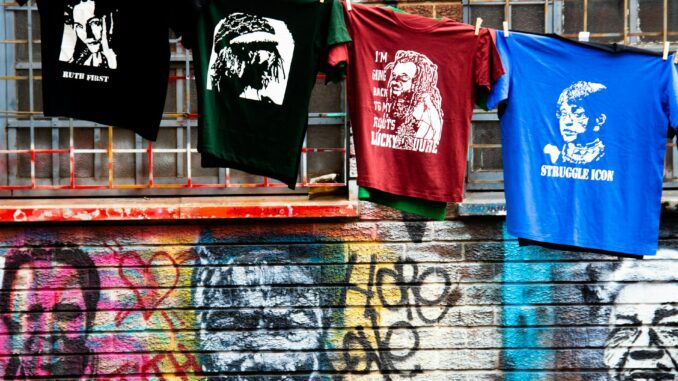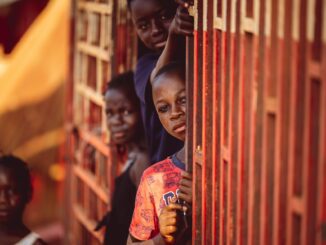
When we think about the Top 10 freedom fighters in South Africa, many of us think of Nelson Mandela. However, the democracy of South Africa was a result of many individuals that we don’t speak often about.
They dedicated their time, lives and strength to overcome the apartheid. And as it stands today, every year on April 27 South Africans celebrate the Freedom Day that resembles the persistent battle fought to get to where they are today.
Who is a Freedom Fighter?
A Freedom fighter is an individual that was actively a part of the resistance movement which voiced against the oppressive political and social establishments. These are also individuals that use physical force in order to cause change in both the political and social order.
They also tend to actively participate in protests through diverse means such as literature, legal advocacy and financial contributions. Freedom fighters in South Africa during apartheid were prominently known to inspire and motivate others to fight for justice and equality.
They ensured that people were made aware of their rights and their power. And it is because of them that today South Africa is a prosperous nation and a free country. True freedom denotes having liberty from any kind of colonizers and injustice.
Apartheid and the struggle for freedom
All South Africans on 27 April 1994 were casting their vote for the first time in the very first free and democratic elections held in the country. It was a long walk to freedom and a significant moment to many South Africans.
After years of battling against the atrocious apartheid laws, and the continuous grapple against repression and violence, the people of South Africa prevailed.
Among many South African freedom fighters, prominently known is Nelson Mandela who fought against the atrocities and inequalities of apartheid. In a system where white supremacy was dominant in the country, apartheid divided everyone by the colour of their skin.
Racial segregation had four categories under the apartheid system of laws: white/European, black, coloured and Indian/Asian. South African citizens that were non-white were subject to treatment as second class citizens with limited to no political power.
Racial discrimination was one of the central items on the United Nations agenda after African nations were gaining independence. After the Sharpeville massacre in South Africa on 21 March 1960 how the world was looking at apartheid and racial discrimination was sensitized.
In 1963 the General Assembly of the United Nations adopted the Declaration on the Elimination of All forms of Racial Discrimination. This also resulted in the International Convention in 1965.
The top 10 Freedom Fighters of South Africa
Winnie Madikizela-Mandela
People had known her as the former wife of Nelson Mandela. However, she is known as the “mother of the nation” in South Africa and as one among the top 10 female freedom fighters in South Africa.
While many leaders were being forced to flee or were going through imprisonment, she kept the fire burning fighting against apartheid. Her struggles against the apartheid government cost even her own freedom.
She was locked in solitary confinement in 1969 for 491 days at the Central Prison in Pretoria. That was not the end; she was subject to torture and brutally beaten while in prison for her work in the resistance movement.
David Webster
He is an academic and an anthropologist who organised a sit-in on the library steps of the city council in 1965. This took place in result of the city council ruled in favour of banning black people from watching rugby games.
He is the founder of Conference of Academics for a Democratic Society (CADS), hosting a number of academic that believed in democracy and he got involved with them to enforce pressure in the university.
Helen Suzman
A parliamentarian whose work was spanning for over 36 years and they were standing for equality and human rights. She also served on the Independent Electoral Commission that oversaw the first democratic elections in 1994.
Prior to being a member of parliament, she used her voice to raise awareness on justice while representing the Progressive Party in Parliament. This party was against the opposition that ruled the apartheid era.
Nelson Mandela
Among the top 10 freedom fighters in South Africa, he is an admirable icon all around the world for his commitment to peace and negotiation. He was also the first South African president that democratically won the election. He was a revolutionary political leader who was a philanthropist at heart and a champion of women’s rights.
Steve Biko
He was an anti-apartheid activist in 1977 that died in a police hospital after going through a rigorous interrogating process by the police. His death leading to international protests and a UN arms embargo.
He was spearheading the South African Students Organisation (SASO) at the time and fount against injustice black students were facing. He was also the founder of the Black Consciousness Movement (BCM).
Albertina Sisulu
Sisulu was working as a nurse when she encountered the inequality black people were facing. Racism was directly affecting her life as a professional. And she was significantly being treated less superior to her white counterparts.
During the beginning of her political journey which started in 1984 upon joining the ANC Women’s League, she was helping to organise the revolutionary anti-pass women’s march. She also worked towards opposing the Bantu education system and turned her home to a make-shift school giving black children the opportunity for education.
Lillian Masediba Ngoyi
Ngoyi had a talent for public speaking and this won her recognition by the ANC and joined in 1950. She fought among some of the many South African freedom fighters and organised one of the largest protests against apartheid laws.
Helen Joseph
She was one of the leaders in 1955 that read out the Freedom Charter at the Congress of the People embodying the aspirations of Black people. Joseph engaged in organising the Women’s March in 1956.
Charlotte Maxeke
She was known as the “Mother of Black Freedom” for fighting towards women’s rights. After building a school in Evaton, Johannesburg she made quality education available to Black children.
Phumzile Mlambo-Ngcuka
Actively involving herself in the struggle for freedom to end apartheid she was a part of the women’s rights movement. She helping to ensure women were represented in the democratic constitution in South Africa.
Conclusion
The long marked history of South Africa is what makes it a strong nation welcoming diversity and difference. The apartheid was an atrocity against race and colour where people where notions of white supremacy segregated a nation.
However, freedom fights that stood against such adversities and overcame the struggle for freedom are the reason why South Africa remains a liberated and progressive nation. The ones that fought the ugly wars should never be forgotten and will always remain as a symbol of history and freedom.
Key Points
- Freedom fighters actively resisted oppressive political and social systems. They used physical force, protests, literature, legal advocacy, and financial support.
- Freedom Day on April 27 celebrates the battle against apartheid. It marks South Africa’s first free and democratic elections in 1994.
- Apartheid divided people by race: white, black, coloured, and Indian. Non-whites had little political power and faced severe discrimination.
- The Sharpeville massacre in 1960 drew global attention to apartheid. In response, the UN adopted the Declaration on the Elimination of Racial Discrimination in 1963.
- Key freedom fighters like Nelson Mandela, Winnie Madikizela-Mandela, Steve Biko, Albertina Sisulu, and Helen Suzman led the fight against apartheid.
FAQs
Who is the greatest freedom fighters of South Africa?
Among the many, Nelson Mandela was one of the most significant and prominent freedom fighters in South Africa during apartheid.
Who fought for human rights in South Africa?
Nelson Mandela fighting for human rights and freedom he was imprisoned for over 27 years and was freed in 1990. He negotiated to end the apartheid and bring peace to a country that Is racially divided.
How did apartheid end?
After years of violent internal protests, the white commitment was weakening. The end of the Cold War bought down the rule of white minority in Pretoria.
Who colonized South Africa during apartheid?
Netherlands (1652 – 1795 and 1803-1806) and Great Britain (1795-1803 and 1806-1961).

